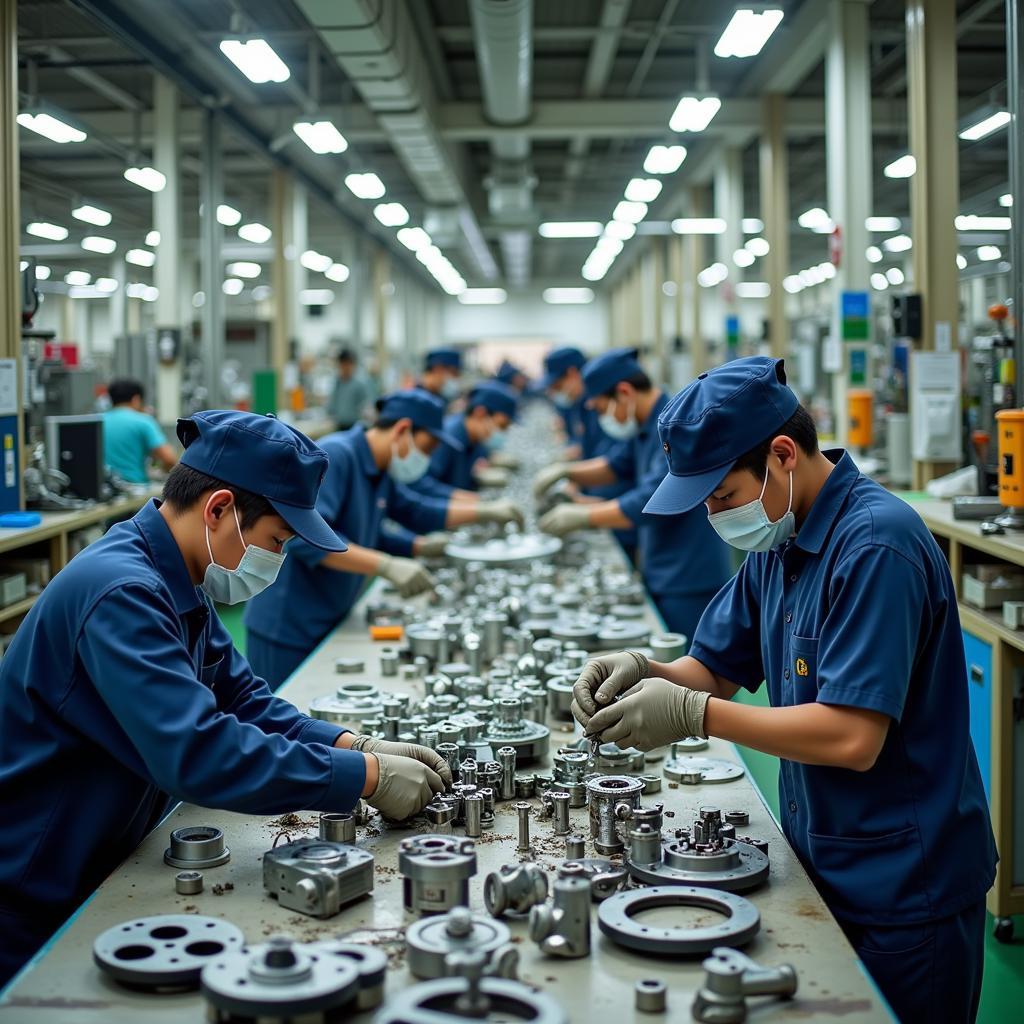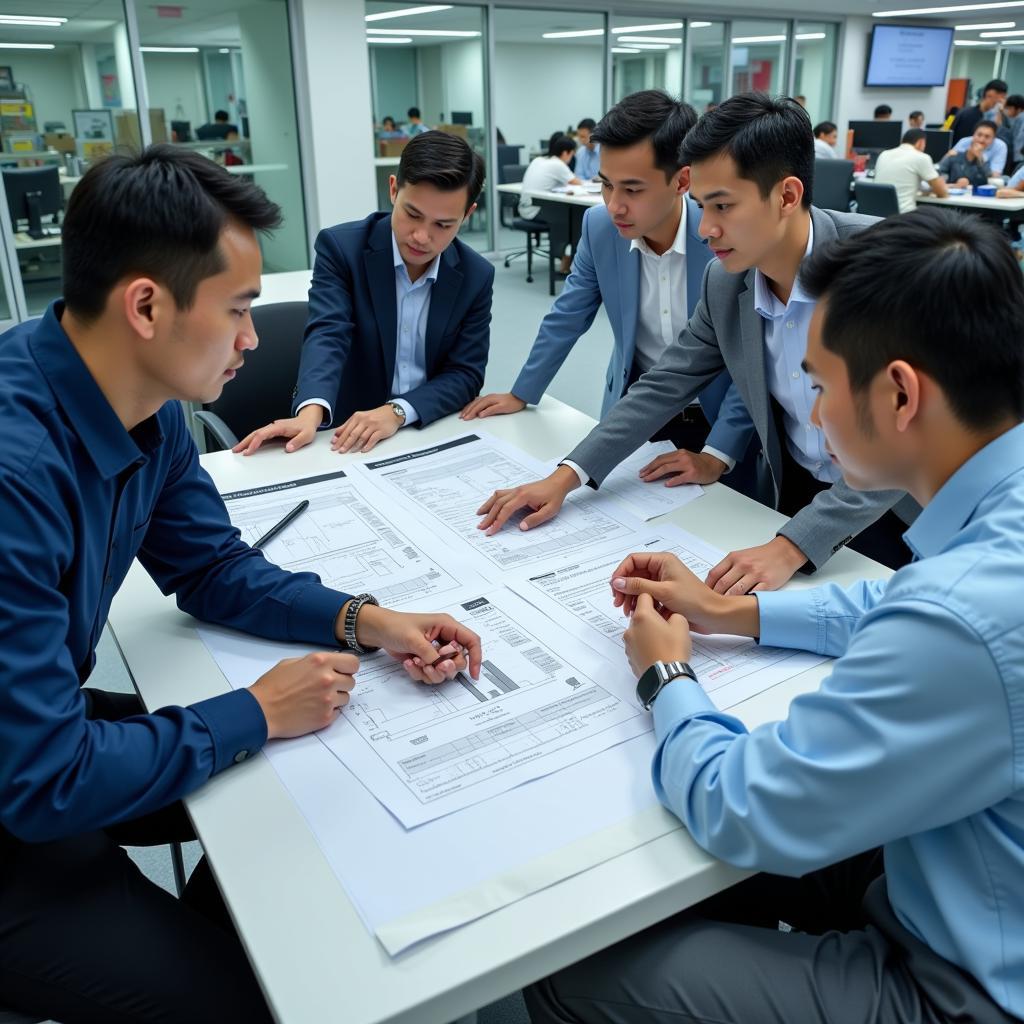The ASEAN automotive industry is experiencing a period of robust growth, fueled by rising incomes, favorable government policies, and a burgeoning middle class. This presents a significant opportunity for Asean Automotive Suppliers, who play a crucial role in providing the components, systems, and technologies that power this dynamic sector.
A Thriving Ecosystem: Understanding the ASEAN Automotive Supply Chain
The ASEAN automotive supply chain is a complex and interconnected network of manufacturers, suppliers, distributors, and retailers. At the heart of this ecosystem are the ASEAN automotive suppliers, playing a critical role in providing a wide range of components, including:
- Engine Components: Pistons, cylinders, crankshafts, and valves.
- Transmission Systems: Gears, shafts, clutches, and torque converters.
- Braking Systems: Discs, calipers, pads, and hydraulic units.
- Electronics and Electrical Systems: Batteries, sensors, wiring harnesses, and infotainment systems.
- Interior and Exterior Components: Seats, dashboards, bumpers, and lighting systems.
 ASEAN Automotive Suppliers Manufacturing
ASEAN Automotive Suppliers Manufacturing
Factors Driving the Growth of ASEAN Automotive Suppliers
Several factors are propelling the growth of ASEAN automotive suppliers:
- Increasing Vehicle Production: ASEAN countries, such as Thailand, Indonesia, and Malaysia, have emerged as major automotive manufacturing hubs, attracting significant investments from global automakers.
- Government Support: Governments across the region have implemented policies to promote the development of the automotive industry, including tax incentives, investment subsidies, and skilled labor development programs.
- Rising Demand for Vehicles: A growing middle class, coupled with rapid urbanization, has led to a surge in demand for passenger cars and commercial vehicles in ASEAN.
Challenges and Opportunities for ASEAN Automotive Suppliers
While the future appears bright for ASEAN automotive suppliers, they face several challenges:
- Competition from Global Players: The ASEAN automotive supplier market is highly competitive, with established global players vying for market share.
- Technological Advancements: The rapid pace of technological advancements, particularly in electric vehicles (EVs) and autonomous driving, requires ASEAN suppliers to adapt and innovate to stay relevant.
- Supply Chain Disruptions: The COVID-19 pandemic highlighted the vulnerability of global supply chains, underscoring the need for greater resilience and diversification.
 ASEAN Automotive Suppliers Meeting
ASEAN Automotive Suppliers Meeting
However, these challenges also present opportunities for ASEAN automotive suppliers:
- Focus on Innovation: By investing in research and development, ASEAN suppliers can develop innovative and cost-effective solutions tailored to the specific needs of the region.
- Collaboration and Partnerships: Forming strategic partnerships with global automakers and technology providers can help ASEAN suppliers gain access to new technologies and expand their market reach.
- Developing a Skilled Workforce: Investing in training and education programs will be crucial to equipping the workforce with the skills needed to thrive in a rapidly evolving industry.
The Future of ASEAN Automotive Suppliers
The ASEAN automotive supplier industry is well-positioned for continued growth in the coming years. The region’s strategic location, cost-competitive labor force, and supportive government policies make it an attractive destination for automotive manufacturing and related industries.
ASEAN Bearing Raden Saleh Surabaya, a key player in the region, exemplifies the growth potential of ASEAN automotive suppliers.
ASEAN suppliers that can adapt to changing market dynamics, embrace innovation, and build strong partnerships will be best positioned to capitalize on the opportunities presented by this dynamic sector.
FAQs about ASEAN Automotive Suppliers
1. Which ASEAN countries are major automotive manufacturing hubs?
Thailand, Indonesia, and Malaysia are the leading automotive manufacturing hubs in ASEAN.
2. What are the key challenges faced by ASEAN automotive suppliers?
Key challenges include intense competition, rapid technological advancements, and supply chain vulnerabilities.
3. What are some opportunities for growth in the ASEAN automotive supplier market?
Opportunities lie in innovation, collaboration, and developing a skilled workforce.
4. How are ASEAN governments supporting the automotive industry?
Governments are implementing policies such as tax incentives, investment subsidies, and workforce development programs.
5. What is the outlook for the ASEAN automotive supplier industry?
The outlook is positive, with continued growth expected driven by rising demand and supportive government policies.
Need more information?
For further inquiries about ASEAN automotive suppliers or related topics, please contact us at:
Phone Number: 0369020373
Email: [email protected]
Address: Thon Ngoc Lien, Hiep Hoa, Bac Giang, Vietnam
Our dedicated customer support team is available 24/7 to assist you.

